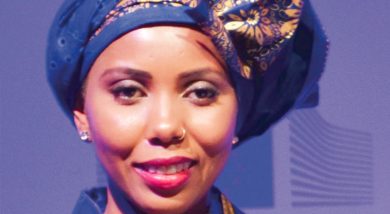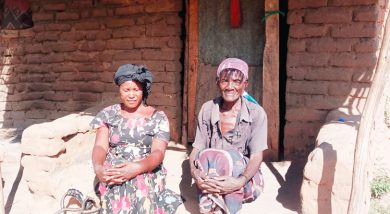Women developing communities
When Godfrey Chikwakwa married Joyce White 24 years ago, little did he know that she will employ him.
The 45-year-old father of six who lives in Sanudi Village, Traditional Authority (T/A) Mbera in Balaka says he has been doing piecework in the neighbourhood to support his family.

He recalls his struggles as a breadwinner to get a meal for a day and failing to educate and provide basic needs for his family.
“Life has been tough. I had to work extra harder, but the income was still little and we wallowed in poverty,” says Chikwakwa.
Their worsening poverty prompted him in 2016 to ask his wife to consider venturing into a small-scale business so that both of them contribute to their household’s needs.
Chikwakwa recalls: “I swallowed my pride and admitted that I needed her to be economically active. I told her that as parents, we must all work to provide the basic needs of our family.”
But the idea faced a hiccup just like many rural households that do not qualify for loans in banks as such institutions are beyond their reach.
However, his wife started selling fritters in the village in a quest to save for capital. Their life kept becoming miserable.
In 2018, the United Nations (UN) and a non-governmental organisation (NGO-private sector consortium led by Concern Worldwide started to work with women in the area and formed village savings and loan (VSL) groups as an approach striving to economically empower them and reduce extreme poverty.
The initiative is under Promoting Sustainable Partnerships for Empowered Resilience (Prosper) in Malawi programme which is funded by the United Kingdom (UK) government.
White joined Tikondane 3 VSL group of 33 where members save earnings and obtain soft loans to live their entrepreneurial dreams.
She borrowed K50 000 from the group which she invested in maize and groundnut production.
Proceeds from the crops enabled her to start selling soap and boosted the fritters business with a capital of K100 000.
By end of that year, White also got a dividend of K200 000 that she used to erect a modern three-bedroomed house.
White recalls with a smile: “Life changed for the better right then. We started to eat three meals a day and the children got almost every basic need.”
At the end of 2019, the 41-year-old mother got K250 000 from the group on her K102 000 savings.
She added K100 000 from soap and fritters proceeds and bought a motorcycle at K350 000 for taxi business locally known as kabaza.
“I thought it wise to employ my husband for smooth operations and for him to work smart,” says White, who wants to have seven multiple sources of income for her household.
On a daily basis, Chikwakwa gives his boss (wife) K2 500 from the business and is paid K25 000 monthly salary, among other benefits.
The husband is proud of the wife for making him productive.
Says Chikwakwa: “Our household income has increased since she started doing business. I no longer get involved in piecework that used to wear and tear my body. I will be forever grateful for her loving and supportive spirit.”
Another member, Mary George, 30, from Chipole Village, says the group has brought immerse blessings to her life.
“I was challenged to start a small business which enables me to have money to meet all my family’s needs,” she boasts.
George borrowed K50 000 and started selling cloth wrappers (zitenje) in 2018. Now, her capital is K80 000 and makes a profit of K60 000.
The mother of two has built a three-bedroomed house roofed with corrugated iron sheets.
The community VSL facilitator, Amina Douglas, says members are also imparted with financial literacy and business management skills.
Group village head (GVH) Chipole says he is pleased with the developments mushrooming in the area, courtesy of the women drive.
He states: “It is becoming clear that women are agents of positive change. They always take money home to help children and build houses.
“They just need support and initiatives like the ‘village banks’ to be economically empowered for them to do the wonders like White.”
The traditional leader appeals for more women empowerment interventions, saying to address gender inequality, women should have successful businesses and acquire assets.
UN Prosper coordinator Sarah Kohnstamm says promotion of women’s economic welfare is key to the sustainable development of communities in the country.
“We support the government of Malawi to reduce extreme poverty in rural communities by increasing financial services and products for pro-poor economic development. The VSL groups are just one of the effective responses to reducing poverty,” she says.
On his part, Prosper consortium director Chris Connelly says the enhanced financial base of women increases communities’ ability to deal with shocks and stresses.
“This leads to transformative changes within households for women and men to collaborate in making strong decisions. The initiative is also eradicating devastating social exclusion and poverty,” he says.
The Prosper programme has components of reducing impacts of climate shocks, responding to seasonal consumption needs, supporting the design of social safety nets, and generating evidence and knowledge to inform government policy.
It is being implemented in Balaka, Chikwawa, Mangochi and Phalombe targeting 300 000 households with the VSL initiative benefiting 1 501 groups with a membership of 25 255.



